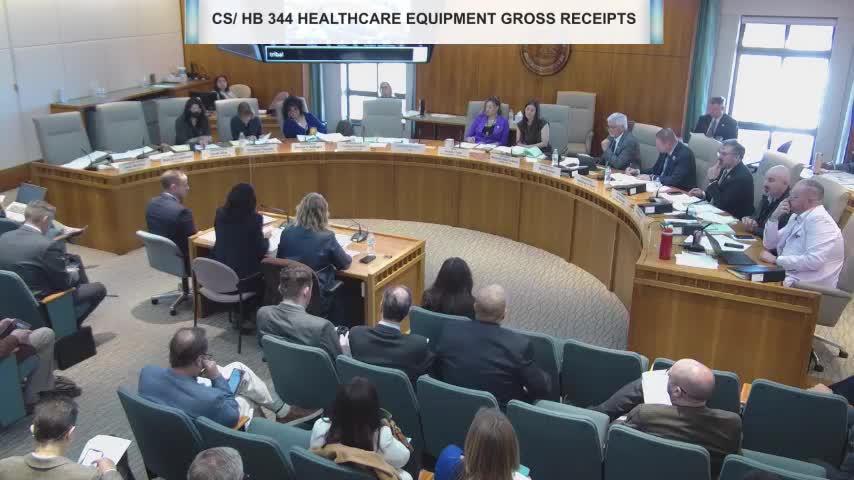Lawmakers debate HB344 to exempt health-care services from GRT; municipalities raise revenue concerns, panel temporarily tables bill
Get AI-powered insights, summaries, and transcripts
Subscribe
Summary
House Bill 344 would expand gross receipts tax exemptions for health-care services, aligning New Mexico with most states, proponents said. Supporters argued the change would help recruit and retain providers; municipal officials warned of large local revenue losses. The committee temporarily tabled the measure after extended debate.
A sponsor of House Bill 344 told the committee the bill would remove gross receipts tax (GRT) on most health-care services, bringing New Mexico in line with 48 other states. ‘‘New Mexico is one of only two states that does that,’’ the sponsor said, adding that the current treatment is a competitive disadvantage for recruiting and retaining providers.
Supporters described the measure as an investment in the state’s health-care workforce. Tom Kirsma, executive director of the New Mexico Dental Association, told the panel that New Mexico is losing dentists at an alarming rate and framed the tax change as an investment to retain providers. "As you consider this tax cut, I want you to focus on revenue loss, but not the revenue from the tax, but the recurring revenue our state loses with every doctor and dentist that leaves the state," Kirsma said.
The bill would not extend exemptions to Medicaid reimbursements, the sponsors said; providers already receive payment that accounts for GRT under current Medicaid reimbursement arrangements. Several witnesses from medical societies, the New Mexico Hospital Association, and specialty provider groups testified in support, saying the exemption would reduce administrative burdens and improve recruitment.
Municipalities and local officials pushed back. Mac Geisel, Rio Rancho city manager, and JD Bullington, representing the City of Santa Fe, described a significant fiscal risk to local governments and expressed concern about the bill’s current lack of a finalized local-revenue offset. Allison Nichols of the New Mexico Municipal League cited the FIR estimate of roughly $100 million in lost local revenue and called for a plan addressing how cities and counties would replace that income for essential services.
Committee debate focused on hold-harmless mechanics, NAICS-code implementation detail and Medicaid carve-outs. Jennifer Fabian, an LFC economist who wrote the FIR, explained that the analysis used tax-receipt data (RP-80) and identified NAICS codes within the health-care industry to estimate impacts, noting the data are not always perfectly disaggregated. Discussion also touched on medical malpractice, Medicaid reimbursement rates and residency capacity as part of a broader strategy to retain providers.
Committee action: After extended discussion and multiple members urging further work with municipalities, Representative Duncan moved to temporarily table HB344. The motion was seconded and accepted; no final passage was recorded during this hearing.
Ending: Sponsors said they are committed to continued talks with local governments on hold-harmless or other cost-sharing arrangements and noted the bill’s intent is to address provider shortage issues alongside other measures such as malpractice reform and Medicaid rate changes.
